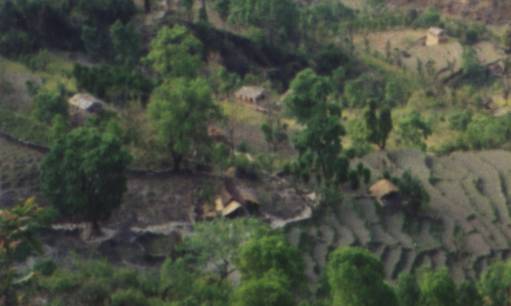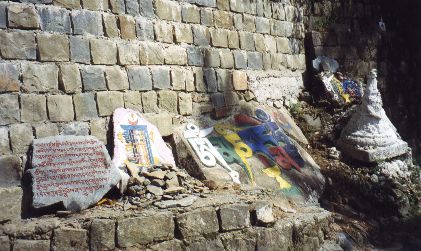|
Another early morning wake up call -- my alarm goes off at a quarter to 5. Capricious clock -- set it for 5 and it takes this as a vague guideline. The night's steady rain has temporarily let up. Pokhara is a green jungle in the early morning light. I catch a bus, which stops at the central bus station, where a ramshackle collection of food stalls have had trouble keeping out the rain. Tin roofs leak. Puddles gather, flow, dissipate. Life is drenched and cleansed.
Finally the bus continues its journey, and images flash past the window: a shoe shiner, crisp green farm plots, a bicycle repair shed, children playing delightedly with their imagination. We stop for breakfast at a solitary roadside restaurant set among green rice paddies. I spend three days struggling with various means of transportation to make my way to Dharamsala in the state of Himachal Pradesh in northern India. Three days rattling along in buses. Three days sitting in train stations waiting for a train with an empty seat. Three nights trying to sleep in trains or in noisy roadside motels that shudder as traffic rumbles past. At last, I board a bus that climbs from the sweltering plains of the Punjab to Dharamsala, which straddles the western edge of the Himalayas. Dharamsala is the headquarters of the Tibetan Government in Exile and the home of the 14th Dalai Lama, Tenzin Gyatso. In Tibet, he is called "Gyalpo Rimpoche", meaning "Precious King".
Prayer wheels at the Dalai Lama's temple in McCleod Ganj, Upper Dharamsala.
Mani stones in McCleod Ganj bearing Buddhist mantras and prayers. |


